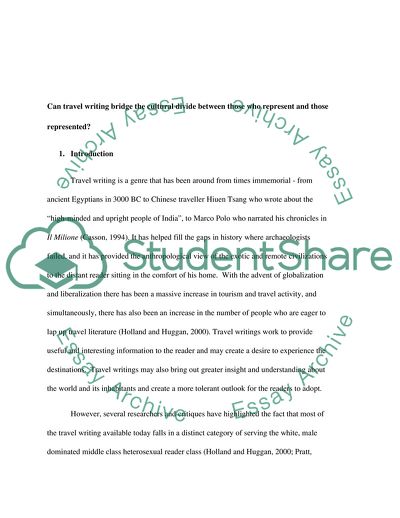Cite this document
(Ethical, Gender Implications of Considering Travel Writing as a Form Coursework, n.d.)
Ethical, Gender Implications of Considering Travel Writing as a Form Coursework. Retrieved from https://studentshare.org/humanitarian/1744036-positions-literature-society-geography
Ethical, Gender Implications of Considering Travel Writing as a Form Coursework. Retrieved from https://studentshare.org/humanitarian/1744036-positions-literature-society-geography
(Ethical, Gender Implications of Considering Travel Writing As a Form Coursework)
Ethical, Gender Implications of Considering Travel Writing As a Form Coursework. https://studentshare.org/humanitarian/1744036-positions-literature-society-geography.
Ethical, Gender Implications of Considering Travel Writing As a Form Coursework. https://studentshare.org/humanitarian/1744036-positions-literature-society-geography.
“Ethical, Gender Implications of Considering Travel Writing As a Form Coursework”. https://studentshare.org/humanitarian/1744036-positions-literature-society-geography.


